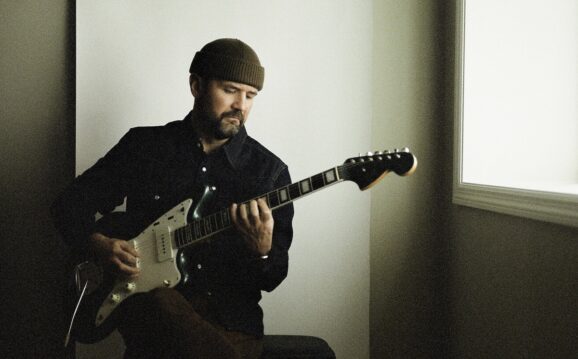Rufus Wainwright views his new album Unfollow the Rules as a bookend to his 1998 self-titled debut. That critically acclaimed album launched a career that found Wainwright veering from the pop world to cover Judy Garland, compose two operas and release a collection of Shakespeare sonnets. These musical detours alienated some fans, but the American-Canadian singer-songwriter has always followed his muse, and now, eight years after his last pop album, Wainwright has returned to the genre where it all began.
Unfollow the Rules, Wainwright’s ninth album, was recorded in some of the same Los Angeles studios as his debut and also features some of the same topnotch studio musicians. Wainwright’s first album was often weighed down by his fierce ambition and his desire to establish an artistic identity separate from his folk singing parents, the late Kate McGarrigle and Loudon Wainwright III. But now at the age of 46, happily married and a father, he has nothing to prove.
Working with producer Mitchell Froom, Wainwright has crafted 12 melodic artistic pop tunes that are some of the finest of his career. He writes about everything from family to fame and his words are as sharp and literate as ever providing a focus to this album that was lacking in some of his earlier releases. Unfollow the Rules was originally scheduled for an April release but was delayed due to the COVID-19 pandemic. Wainwright spent his time in quarantine streaming daily concerts called Quarantunes from his home.
Now living in Laurel Canyon, the musical history of that famous L.A. neighborhood permeates the material here. The album opens with “Trouble in Paradise” which is reminiscent of the musical sensibility that came out of the west coast singer-songwriter scene of the 1970s. The song opens with some thundering rock drumming by Matt Chamberlain giving way to Wainwrights’ lushly layered vocals. Singing the chorus he warns, “There’s trouble in paradise/Don’t matter if your drinks are neat or on ice/There’s always trouble in paradise/ Don’t matter if you’re good or bad or mean or awfully nice.”
The song, which was inspired by Vogue editor-in-chief Anna Wintour, hints at the darkness that lies beneath the surface and is a theme that re-appears at various points throughout the album. The California connection can also be heard on “Damsel in Distress,” Wainwright’s homage to Joni Mitchell that features some bright handclaps and intricate guitar work by Blake Mills.
But it is on the ballads that Wainwright gets to show off his full vocal prowess. On the gorgeous, “Only the People That Love” his warm tenor soars, demonstrating that age has provided him with more control over his impressive vocal talents. The title track, taken from a phrase his daughter uttered one day, is further evidence of this as he croons “I’m no Hercules/And this is Herculean/Tomorrow I will just be feeling the pain,” set against a rising string section. Unfollow the Rules is an elegant album full of sweeping strings, strong woodwinds and lush backing vocals, yet Froom brings a sense of restraint to the project and keeps Wainwright’s penchant to going overboard in check.
Songs like “Hatred,” which features a frantic violin and piano, manage to be theatrical without overbearing, while “Early Morning Madness,” about waking up with a hangover, uses sonic dissonance to its advantage as it builds to an intense crescendo that adds to the album’s edgy feel. The acoustic “Peaceful Afternoon,” a love song that Wainwright wrote to his husband German art director Jorn Weisbrodt, is the closest he comes to writing an actual folk song. The song celebrates their long-standing relationship, but in true Wainwright fashion he factors in death, reminding us that even the most lasting of love does not last forever.
The album closes with “Alone Time,” a paean to solitude that was written months before the pandemic hit but sounds eerily relevant. His vocals are richly layered to create the kind of harmonies that defined Brian Wilson’s finest work. Unfollow the Rules is a full-circle moment for Rufus Wainwright as he draws from all aspects of his musical and personal life to create a collection of timeless songs that mark a new creative peak for the singer-songwriter.









